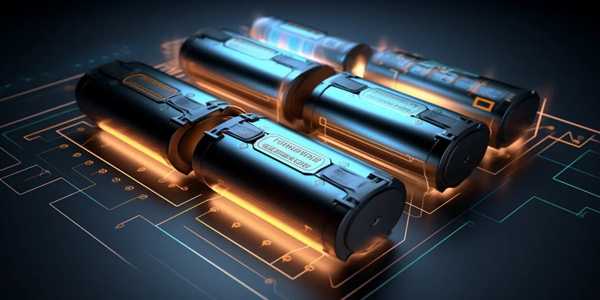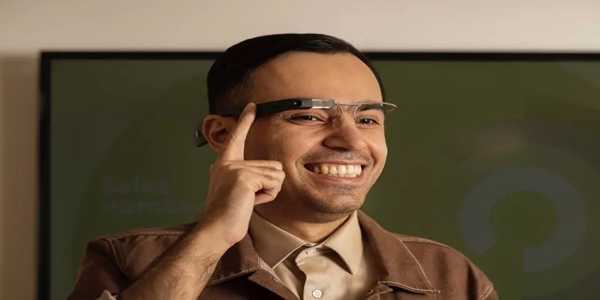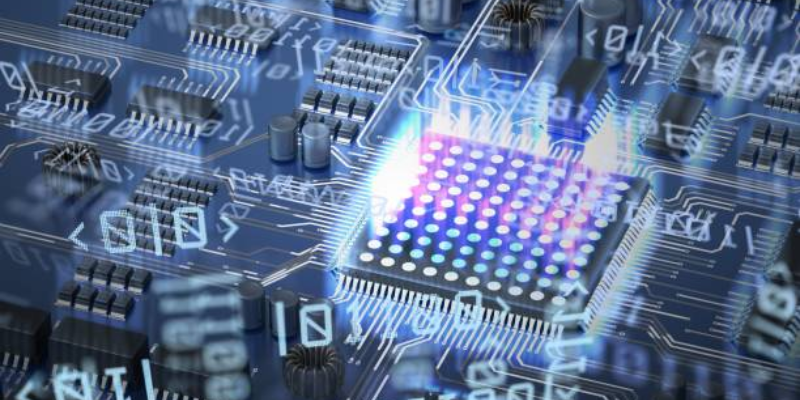Quantum Computing Chips: The Transformative Future of Electronics
Author: Elison
As you enter the quantum chip universe, prepare for a new era in electronics to unveil in your eyes. These new chips use quantum laws of mechanics to manipulate information in an unimaginable direction in the past. With quantum chips, you will understand how quantum chips are revolutionizing industries, including discovering drugs, financial modeling, and many more in the coming years.
Quantum Computing Chips: Redefining the Boundaries of Electronics
The future of electronic technology will change with quantum chips, rewriting computation and processing information laws with traditional computers to unimaginable values. Traditional computers use quantum laws for complex computation at unimaginable values with traditional computers through new chips.
Harnessing Superposition
The quantum principle of quantum superposition is at the nucleus of quantum chips. In contrast with traditional bits, one at a time, 0, 1, quantum "qubits" can have a range of values at one point in a quantum computer. With its role, quantum computers can work in parallel with infinite information and can work a thousand times at times in contrast with traditional computers.
Shattering Traditional Rules
Quantum chips are not upgraded traditional chips but a new computation mechanism altogether. With quantum laws of entanglement and interference, quantum chips can solve a problem in seconds that a traditional computer will in a thousand centuries' worth of years.
Challenges and Future
While quantum computing chips' potential is immense, significant challenges remain. Maintaining quantum states is incredibly difficult, as qubits are highly sensitive to environmental disturbances. Researchers are working tirelessly to improve qubit stability and error correction techniques. As these hurdles are overcome, we can expect quantum computing chips to transform industries and open new frontiers in scientific discovery and technological innovation.
The Unique Properties of Quantum Computing Chips
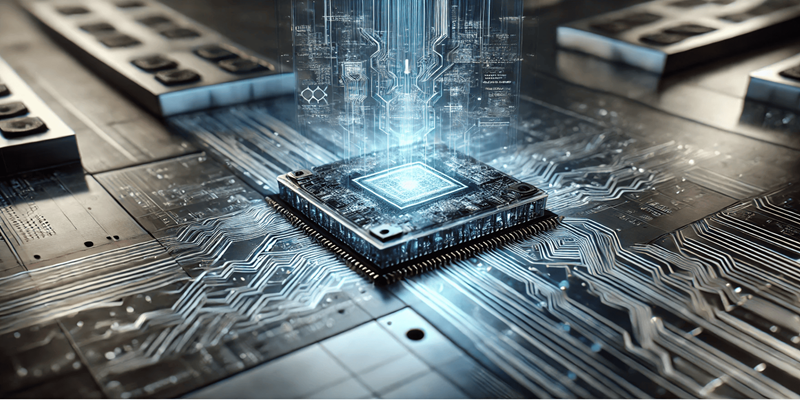
Quantum computing chips are fundamentally different from traditional computer chips. They possess unique properties that make them incredibly powerful for certain types of calculations. These chips harness the principles of quantum mechanics to process information in ways that classical computers cannot match.
Superposition and Entanglement
At the heart of quantum computing chips lie two key quantum phenomena: superposition and entanglement. Superposition allows quantum bits, or qubits, to exist in multiple states simultaneously. Unlike classical bits that are either 0 or 1, qubits can be both 0 and 1 simultaneously. This property enables quantum computers to process vast amounts of information in parallel.
Quantum Coherence and Error Correction
Another unique aspect of quantum computing chips is their reliance on quantum coherence. This delicate state allows qubits to maintain their quantum properties and perform calculations. However, maintaining coherence is challenging, as qubits are highly sensitive to environmental disturbances. To address this, quantum chips employ sophisticated error correction techniques, ensuring the accuracy and reliability of quantum computations.
Advantages of Quantum Computing Chips over Classical Chips
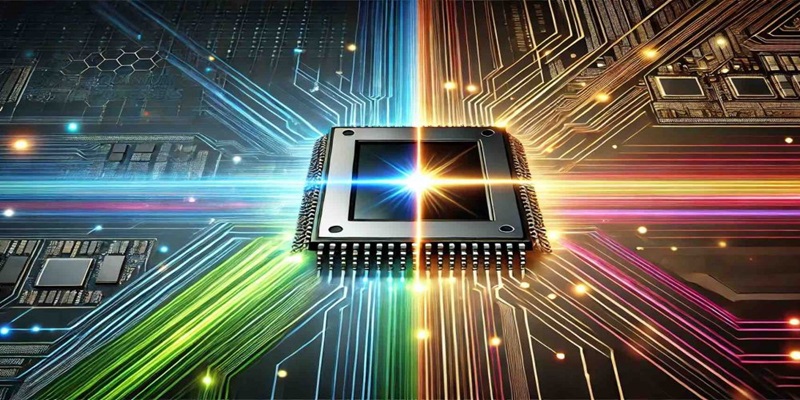
Exponential Processing Power
Quantum computing chips are a quantum leap in processing over conventional chips. Conventional computers use individual 0s and 1s, but quantum chips use qubits and can have many of them at a single location in the state at one moment. With quantum superposition, processing can occur at an unprecedented level in parallel, and quantum computers can address complex problems at exponential rates in relation to conventional computers.
Tackling Previously Unsolvable Problems
The unprecedented quantum properties of quantum chips enable them to attack long-standing intractable complications and tackle them with ease. Simulate complex molecular frameworks for new drugs, for example, or simplify financial models: quantum computation can revolutionize industries. Chips work particularly well in optimizations, machine learning, and encryptions and, with such, deliver a solution to age-old complications that have long bothered conventional computers for years.
Energy Efficiency at Scale
The larger quantum frameworks get, the more efficient they become in terms of consuming less power compared to conventional supercomputers. Existing quantum computers consume a lot of coolers, but future implementations will have enormous computational powers at relatively little power consumption. With such efficiency, high-performance computation can become a cleaner, environment-insensitive reality and address concerns regarding environment-destroying enormous data centers in its more considerable picture consideration.
Breakthrough in Artificial Intelligence
The quantum chip can turbo-boost artificial intelligence and algorithms with its powers. With capacities for processing enormous sets of information and discovering sophisticated patterns at unprecedented velocities, quantum AI can break through in computer eyes, language, and predictive algorithms. With quantum computation and AI synergy, new dimensions of thinking have become accessible and expanded their unimaginable dimensions in the past.
Potential Applications of Quantum Computing Chips
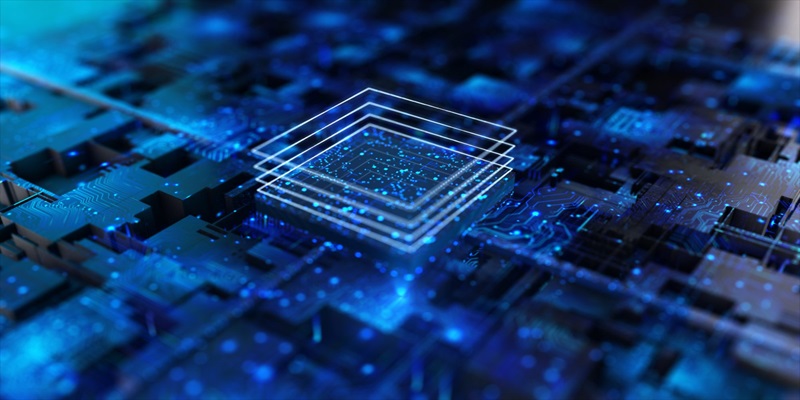
Revolutionizing Drug Discovery
Quantum computing chips have unprecedented capabilities for accelerative drug discovery and development. By simulating complex molecular processes at record scales, chips can enable scientists to target potential drugs with even greater accuracy and pace. That could mean life-saving drugs in a matter of years, not decades, and personalized drugs for personalized patient care.
Accelerating Financial Modeling
Quantum chips can make financial and portfolio optimization a whole new game-changer for financials. With gargantuan processing capacities and new capabilities for processing many factors at once, quantum chips enable new and sophisticated financial models. That could mean smarter investments, truer forecasts, and the smartest-ever financial institution risk management.
Aiding Climate Solutions
Quantum chips can become a key part of our resolution for safeguarding our planet and countering climate change. With record processing capacities, complex processes in climes can be modeled, renewable routes can be optimized, and cleaner, efficient carbon capture technology can be engineered. By providing even more accurate simulations of the environment, quantum chips can make decision-makers wiser about actions to counter its impact.
Shaking Cryptography and Cyberspace
The development of quantum chips comes with challenges and opportunities in cyberspace and cryptography. As a challenge for current security forms, quantum chips have a chance to enable quantum security protocols that can make communications and information secure for all eternity and, in a new and profound manner, forever-changing approaches to security in cyberspace.
Pushing the Boundaries of Quantum Technology
The future quantum chips have in store is filled with unimaginable potential, and everyone is striving tirelessly to overcome current obstacles. By working at quantum technology's cutting edge, breakthroughs in quantum chip stability, quantum error correction, and quantum scalability are being uncovered. All such breakthroughs will make quantum computers a reality with capabilities over and above present computers for specific jobs.
